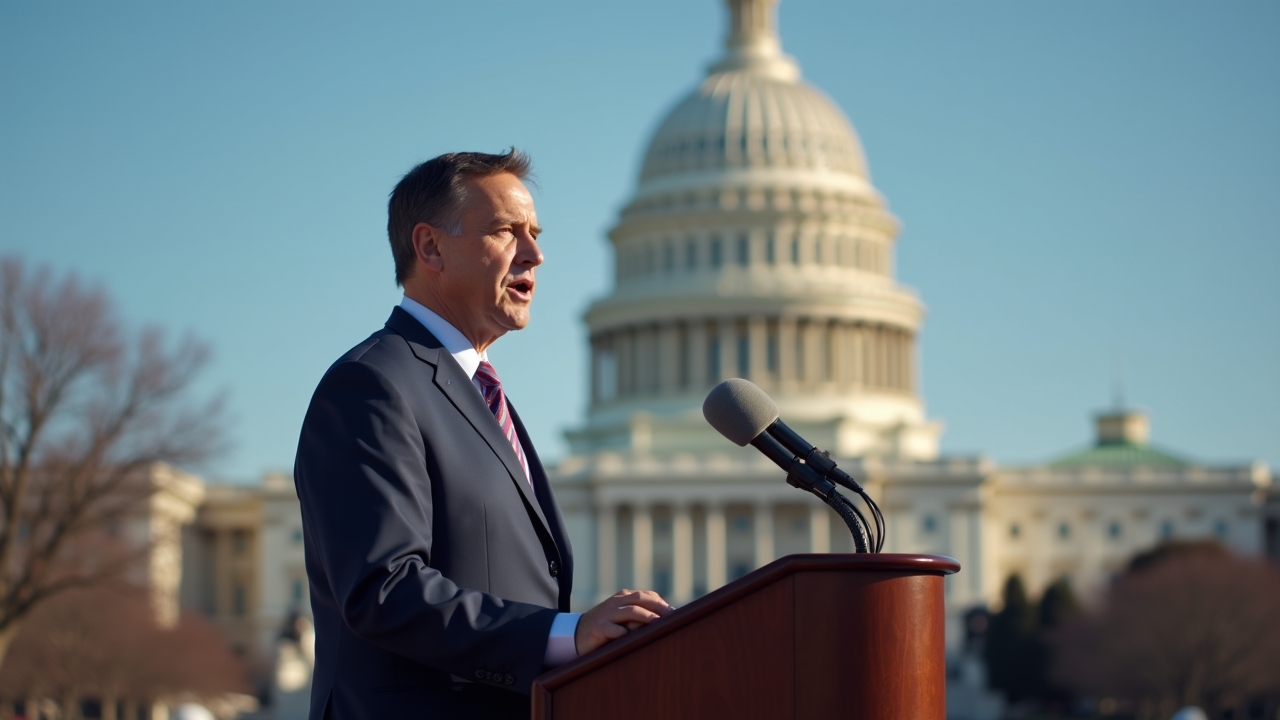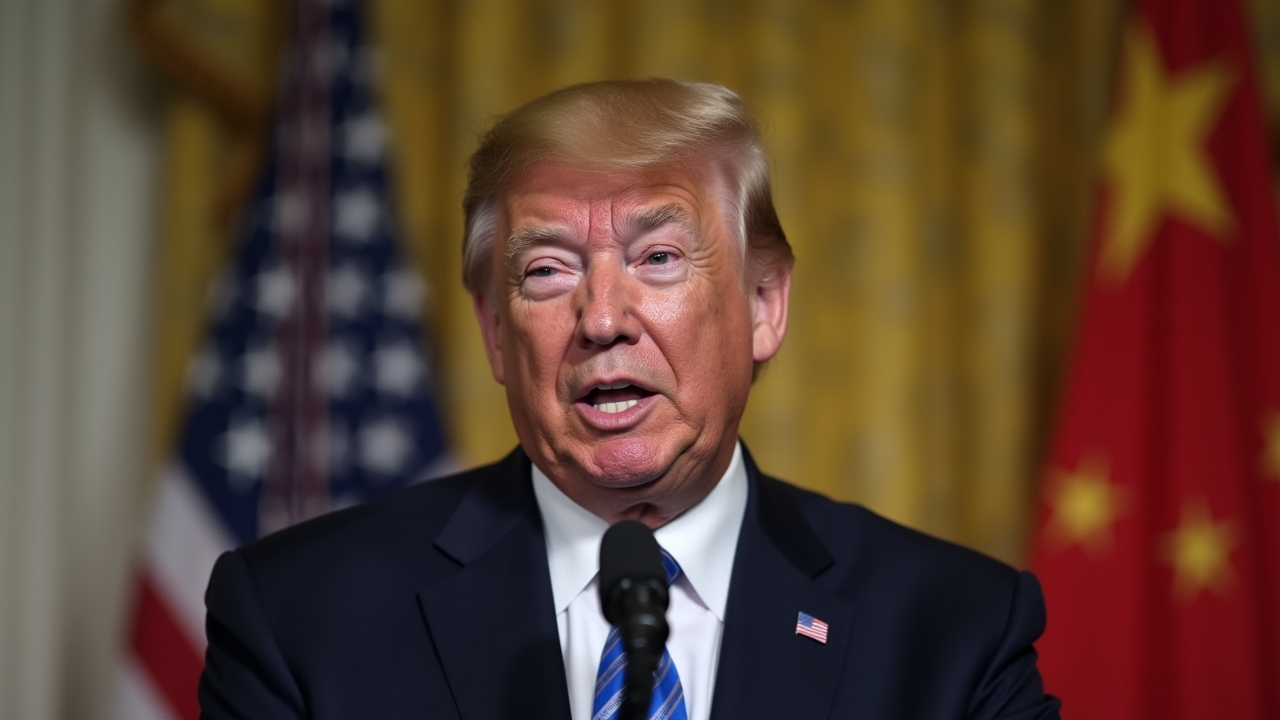PROTECT YOUR DNA WITH QUANTUM TECHNOLOGY
Orgo-Life the new way to the future Advertising by AdpathwayTrump Pushes to End Filibuster for Election Integrity Reforms
Former President Donald Trump’s latest move has ignited a heated discussion among Senate Republicans regarding the future of the filibuster. This procedural rule, requiring 60 votes to pass most legislation, has become a significant obstacle in advancing critical reforms on voting and election integrity. Trump has urged Senate leadership to consider eliminating this hurdle to achieve nationwide voter ID laws and other election reforms.
In a recent post, Trump emphasized urgency, stating, “If we don’t do it, Democrats WILL when they retake power.” His call for action links voter ID laws and election reform with the larger challenge Republicans face in Congress. He is adamant that failing to act now could result in Democrats seizing the opportunity to impose their agenda unchecked in the future.
His push is not just about voter ID measures; it is also a response to the ongoing government shutdown, which is extending into its fifth week. During this period, Trump has repeatedly called for the “nuclear option”—terminating the filibuster altogether. “TERMINATE THE FILIBUSTER, NOT JUST FOR THE SHUTDOWN, BUT FOR EVERYTHING ELSE,” he stated emphatically. He sees this as a pathway to advance policies he believes are essential, including voter ID. The contrast between his assertive stance and the Senate’s current limitations is striking.
As Republicans struggle to break the 60-vote barrier, stalled legislation includes crucial issues such as border security and infrastructure reform. So far, Senate votes on a short-term spending bill have failed 14 times, highlighting a significant governance crisis. Despite holding power in the House and the White House, the GOP’s inability to maneuver past Senate roadblocks has delayed vital services and payments, affecting millions of Americans.
The implications of the filibuster are now drawing scrutiny from influential voices. The Wall Street Journal editorial board has taken a firm stance against dismantling the filibuster. They caution that while this tactic might yield short-term benefits, it could result in long-lasting repercussions should Democrats regain control. They argue, “Republicans would be dumb and hurt the country by breaking the filibuster,” insisting that preserving this rule is essential for political balance.
Trump’s reasoning is clear, tapping into a deeper fear among conservatives: inaction could empower Democrats to pursue their far-left ambitions. He recounted how they previously attempted to eliminate the filibuster but were thwarted by Senator Joe Manchin. This narrative reinforces Trump’s call to arms for the GOP to act boldly. “Democrats tried to end the filibuster already,” Trump noted, stressing the need for immediate action.
The shutdown has already inflicted real harm, with over 600,000 federal workers furloughed and hundreds of thousands working without pay. As this historic impasse continues, federal programs face dire consequences. For instance, the Supplemental Nutrition Assistance Program (SNAP) was on the brink of collapse until a court intervened to provide emergency funding. Judge John McConnell’s ruling was a last-minute rescue for over 40 million Americans relying on these benefits.
Amidst this turmoil, House Speaker Mike Johnson is grappling with the implications of potentially eliminating the filibuster. His caution reflects concerns about future governing dynamics. “What would the Democrats do if they had not a filibuster impediment—no speed bump at all?” he questioned, emphasizing the potential for legislative overreach.
Despite the mounting pressure from Trump and internal frustrations, many Senate Republicans remain hesitant to abandon the filibuster. There is a clear fear among some that doing so could allow Democrats to swiftly enact progressive legislation in the future, should they regain control. The Wall Street Journal highlighted this concern, suggesting that some Senators may find themselves swayed by Trump’s opportunism, while the Democratic left quietly supports such a rapid change.
The Democratic Party’s past efforts to dismantle the filibuster in 2021 and 2022 did not gain traction, thanks in part to opposition from key figures like Manchin and Kyrsten Sinema. Their stance has so far preserved the 60-vote rule, but with public sentiment shifting during the current stalemate, pressure is mounting for Republicans to arrive at a compromise.
Polling data indicates that Republicans are increasingly viewed with skepticism as the shutdown unfolds, creating urgency to resolve outstanding issues for federal employees and American families alike. Concerns over healthcare access also loom large, particularly relating to the Affordable Care Act (ACA) subsidies that risk expiration by year-end.
Trump’s message resonates with certain segments of the party, framing the filibuster as an outdated procedure blocking critical reforms that resonate with conservative values. His adviser articulated this sentiment: “The best way to stop the radical left is to stop helping them now by preserving a rule they will abolish the moment it helps them crush you.” This perspective underlines the urgency felt by some within the GOP to act decisively.
The current confrontation presents a strategic dilemma for Republican leaders: balance the preservation of institutional norms against the pressing need to push forward initiatives like voter ID laws and enhanced border security. This balancing act will determine the path ahead as the Senate gears up for its next session and the possibility of another funding bill.
As discussions evolve, the Senate’s decision-making will remain crucial. Without backing for a significant rule change from leadership figures like Minority Whip John Thune, Trump’s call to eliminate the filibuster may face serious challenges. Until then, negotiations will need to confront not only the immediate obstacles but the broader consequences of any decisions made in this unprecedented moment.
"*" indicates required fields


 10 hours ago
1
10 hours ago
1

















.jpg)






 English (US) ·
English (US) ·  French (CA) ·
French (CA) ·